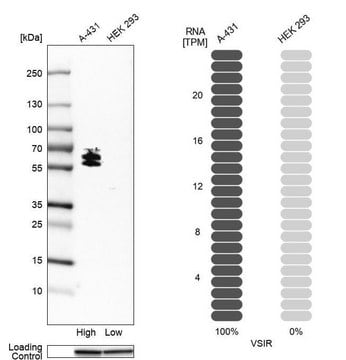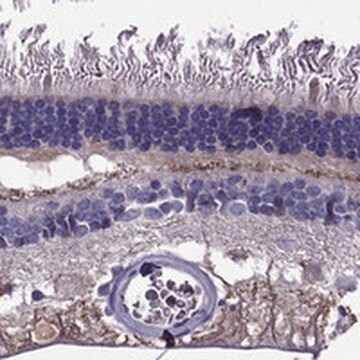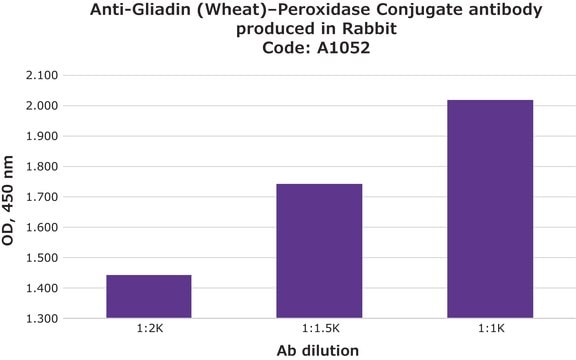MABN630
Anti-SDHA Antibody, clone 7H11.2
clone 7H11.2, from mouse
Sinónimos:
Flavoprotein subunit of complex II, Succinate dehydrogenase [ubiquinone] flavoprotein subunit, mitochondrial
About This Item
Productos recomendados
biological source
mouse
Quality Level
antibody form
purified immunoglobulin
antibody product type
primary antibodies
clone
7H11.2, monoclonal
species reactivity
human, mouse
technique(s)
immunohistochemistry: suitable
western blot: suitable
isotype
IgG2aκ
NCBI accession no.
UniProt accession no.
shipped in
wet ice
target post-translational modification
unmodified
Gene Information
human ... SDHA(6389)
General description
Immunogen
Application
Neuroscience
Neurodegenerative Diseases
Immunohistochemistry Analysis: A 1:250 dilution from a representative lot detected SDHA in human cerebral cortex and human cardiac myocytes tissues.
Quality
Western Blotting Analysis: A 0.5 µg/mL diultion of this antibody detected SDHA in 10 µg of Human brain tissue lysate.
Target description
Physical form
Storage and Stability
Other Notes
Disclaimer
Not finding the right product?
Try our Herramienta de selección de productos.
Storage Class
12 - Non Combustible Liquids
wgk_germany
WGK 1
flash_point_f
Not applicable
flash_point_c
Not applicable
Certificados de análisis (COA)
Busque Certificados de análisis (COA) introduciendo el número de lote del producto. Los números de lote se encuentran en la etiqueta del producto después de las palabras «Lot» o «Batch»
¿Ya tiene este producto?
Encuentre la documentación para los productos que ha comprado recientemente en la Biblioteca de documentos.
Nuestro equipo de científicos tiene experiencia en todas las áreas de investigación: Ciencias de la vida, Ciencia de los materiales, Síntesis química, Cromatografía, Analítica y muchas otras.
Póngase en contacto con el Servicio técnico





